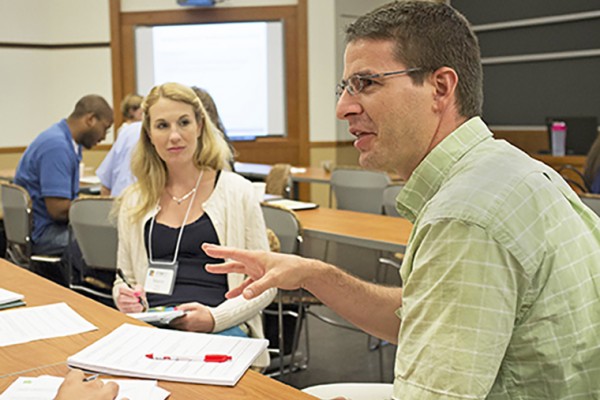Scientists find way to trap, kill malaria parasite
Scientists may be able to entomb the malaria parasite in a prison of its own making, researchers at Washington University School of Medicine in St. Louis report July 16 in Nature.
Study: Smoking may contribute to suicide risk
Cigarette smokers are more likely to commit suicide than people who don’t smoke, a relationship that has been attributed to the fact that numerous people with psychiatric disorders, who have higher suicide rates, also tend to smoke. But a new study by researchers at Washington University School of Medicine in St. Louis finds that smoking itself may increase suicide risk and that policies to limit smoking reduce suicide rates.
Piston named head of cell biology and physiology
David W. Piston, PhD, has been named the new head of the Department of Cell Biology and Physiology at Washington University School of Medicine in St. Louis. Renowned for his groundbreaking work with fluorescent imaging techniques, Piston comes to WUSTL from Vanderbilt University.
New Seigle Suite for Institute for Public Health will highlight program’s presence on Danforth Campus
The Institute for Public Health serves as an important bridge across campus, connecting all seven schools to strengthen Washington University in St. Louis’ impact on public health. Currently, the institute’s sole facility is on the Medical Campus, but thanks to alumnus and university trustee Harry Seigle (AB ’68) (center) and his wife, Susan, the institute soon also will have a home on the Danforth Campus — in the new Brown School building slated for completion next year.
School of Medicine staff given service awards
Larry J. Shapiro, MD, dean of the School of Medicine, recently surprised three staff members with service awards. Pam Gassner was awarded the Dean’s Distinguished Service Award; Peggy Frisella, the Research Support Award; and Amy Stabenow, the Operations Staff Award. Pictured are Lynn Cornelius, MD, Gassner and Shapiro.
Maffly-Kipp receives prize for research in African-American religion and history
Laurie Maffly-Kipp, PhD, a professor in the humanities in Arts & Sciences and in the John C. Danforth Center on Religion & Politics at Washington University in St. Louis, received the 2014 James W.C. Pennington Award for her research on African-American religion and history.
Adults older than 60 less likely to use public transportation, study finds
Walking, biking or taking public transportation for work and errands can increase physical activity and offers other health benefits — but adults older than 60 are much less likely to regularly use public transit, finds a new study of St. Louisans from the Brown School.
STEM Faculty Institute on Teaching a good FIT
Washington University in St. Louis’ Teaching Center brought together faculty from Arts & Sciences and the School of Engineering & Applied Science for the inaugural Summer STEM Faculty Institute on Teaching (STEM FIT), held June 17-19 in Seigle Hall. Faculty developed strategies for incorporating evidence-based teaching practices to improve student learning and encourage undergraduates to persist in STEM majors.
Harnessing the sun’s power
This spring and summer, Washington University in St. Louis is adding 379 kilowatts of solar energy throughout all campuses, a move that will increase its solar output by more than 1,150 percent over previous levels. (Pictured) Tyson Research Center now has a 50-kW ground-mounted array.
Emre Toker appointed managing director of Skandalaris Center
Emre Toker has been appointed managing director of the Skandalaris Center for Entrepreneurial Studies at Washington University in St. Louis. Toker most recently served as entrepreneurship senior mentor-in-residence at the University of Arizona’s Eller College of Management. The appointment is effective Aug. 15, according to H. Holden Thorp, PhD, provost and executive vice chancellor for academic affairs.
View More Stories

